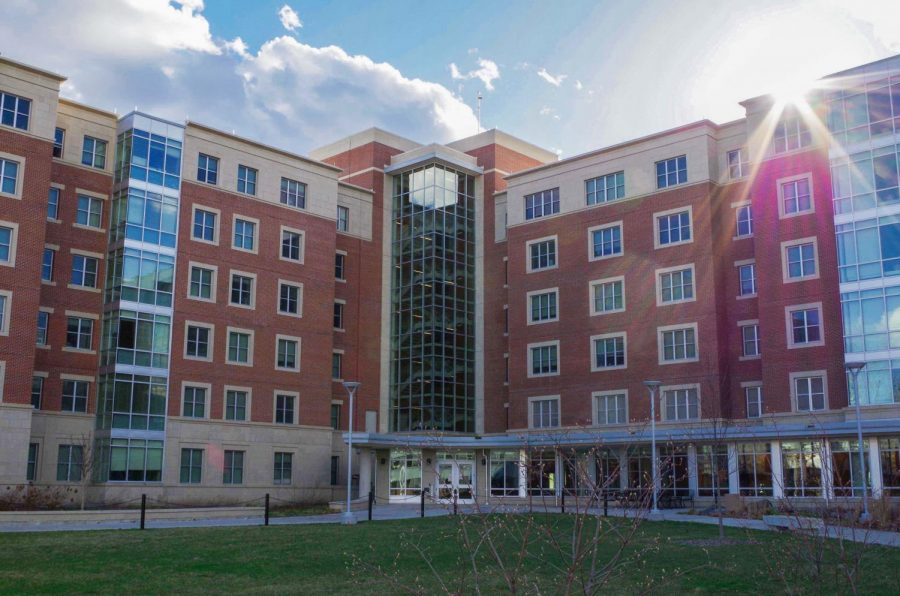EPOL 199 prepares student paraprofessionals for success
Bousfield Hall is one of the newest University Housing residence halls.
May 2, 2018
In a time when University students need more support than ever, it is often difficult to find student leaders on campus to help others in their residence halls. A class for paraprofessionals helps make this process easier.
This class is called Education Policy, Organization and Leadership 199. It is a course for Resident Assistants and Multicultural Advocates hired through University Housing. After students are appointed as an RA or MA, they must sign their contract and enroll in the class online.
Tracy Cunningham, Assistant Director for Residential Life on campus, oversees the course. She hopes that by taking this course, students will have the skills and resources necessary to take on the challenge of serving as an RA or MA during the school year.
The Daily Illini sat down with Cunningham to discuss the course and talk about the importance of taking the course as an aspiring RA or MA.
The Daily Illini: How do RAs/MAs try to bring diversity, inclusion and social justice into the residence halls?
Get The Daily Illini in your inbox!
Tracy Cunningham: Residential Life staff work through a residential curriculum known as the Illinois Residential Experience. This curriculum primarily focuses on four developmental areas – academic success, interpersonal competence, engaged citizenship and social justice exploration.
DI: In what ways has the RA/MA position changed over time?
TC: The RA/MA position adapts to the needs of the current student. We just started the Illinois Residential Experience a few years ago, which has focused our intentional programs and services to the four areas and learning outcomes.
DI: How do RAs/MAs make space for different points of views?
TC: In the EPOL 199 class, one of the foundational concepts of the class is facilitating dialogue versus debating your point of view. We encourage listening to understand another person’s perspectives instead of debating your view of the topic.
DI: How many people can enroll in EPOL 199?
TC: We have 10 sections of EPOL 199. Each class can have as many as 16 students. Because it is a dialogue-based class, we make sure that the classes are smaller.
DI: Is there a difference between how RAs approach the class and how MAs approach the class?
TC: There is no difference in the material for an RA or MA in the class.
DI: What kind of material is covered in the course?
TC: There are course readings and activities. Most of the class is dialogue-based, and we encourage the students to think and talk about their identity, experiences and how they see the world and to listen to other classmates’ experiences to help increase understanding.
DI: Are there assignments in the class such as quizzes and tests, or is it more experience-oriented?
TC: There are four main assignments for the class: an initial reflection paper, a cultural autobiography, a group cross-cultural understanding assignment and a final reflection assignment.
DI: What are the challenges of being involved in the RA/MA process?
TC: You are working with unique and complex student situations, while also focusing on academic needs.
DI: What is the most rewarding aspect of being involved in the RA/MA process?
TC: You get to connect with amazing students and staff. You see students at their happiest moments as well as at some of their most difficult thus far. RAs and MAs are a resource for students, which can be a very rewarding experience.
DI: When do RAs/MAs have to come back to campus for the Fall 2018 semester?
TC: RAs and MAs come back for training at the beginning of August.
DI: What would you say to anybody interested in applying to be an RA/MA?
TC: It is an incredibly impactful and rewarding position. It can be time-intensive based on student needs, and you can truly assist students in their transition and time in college.






